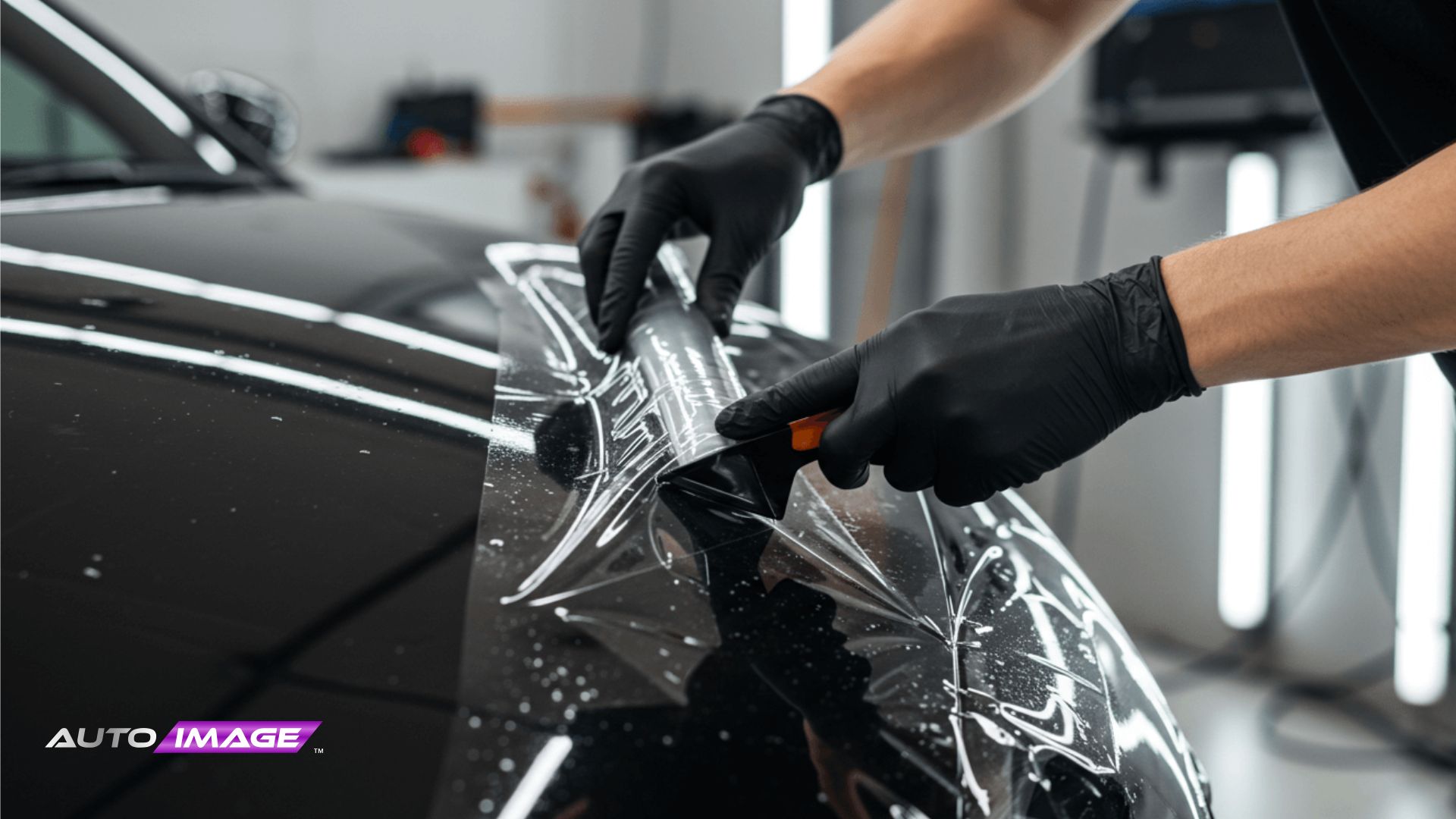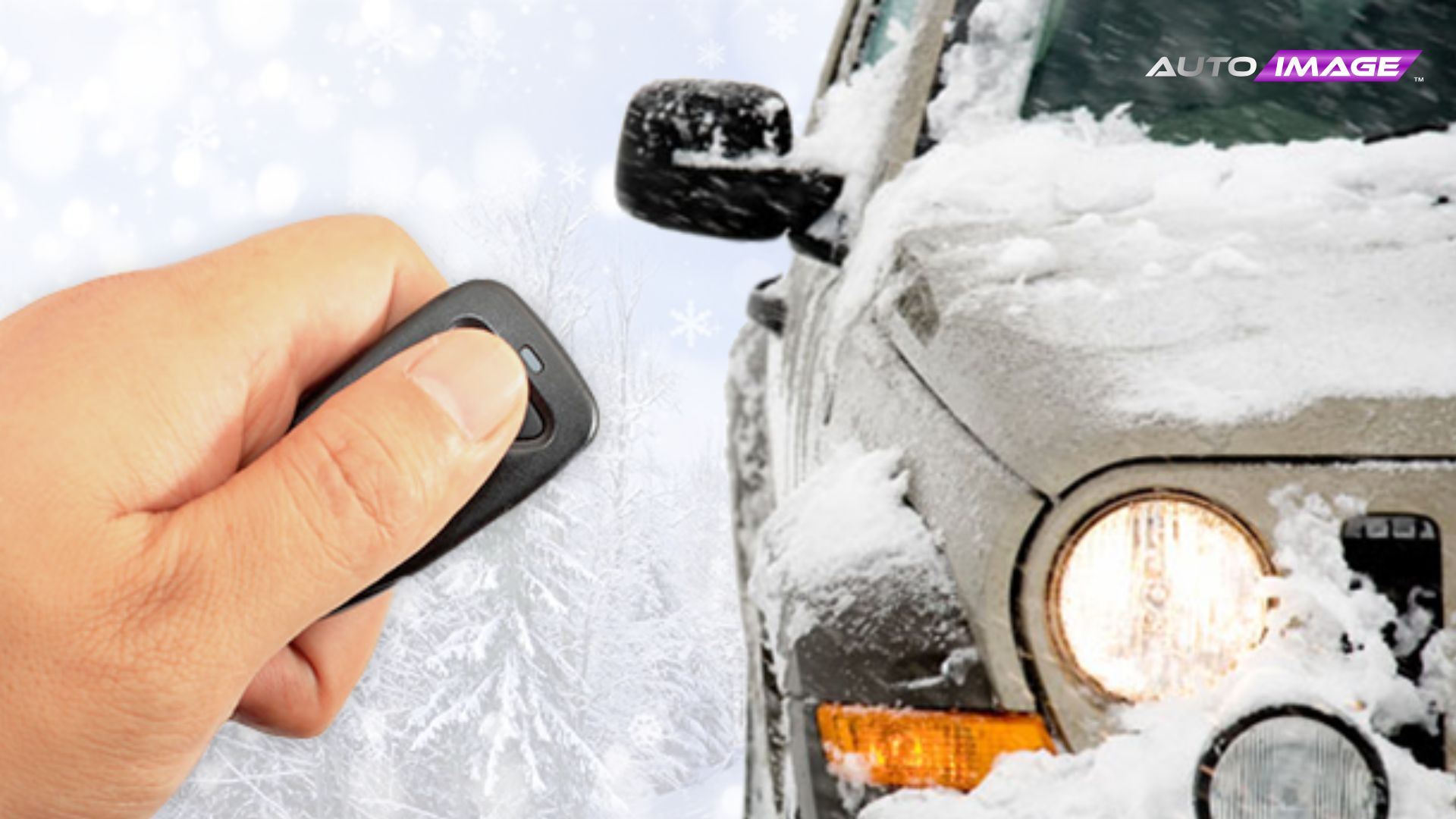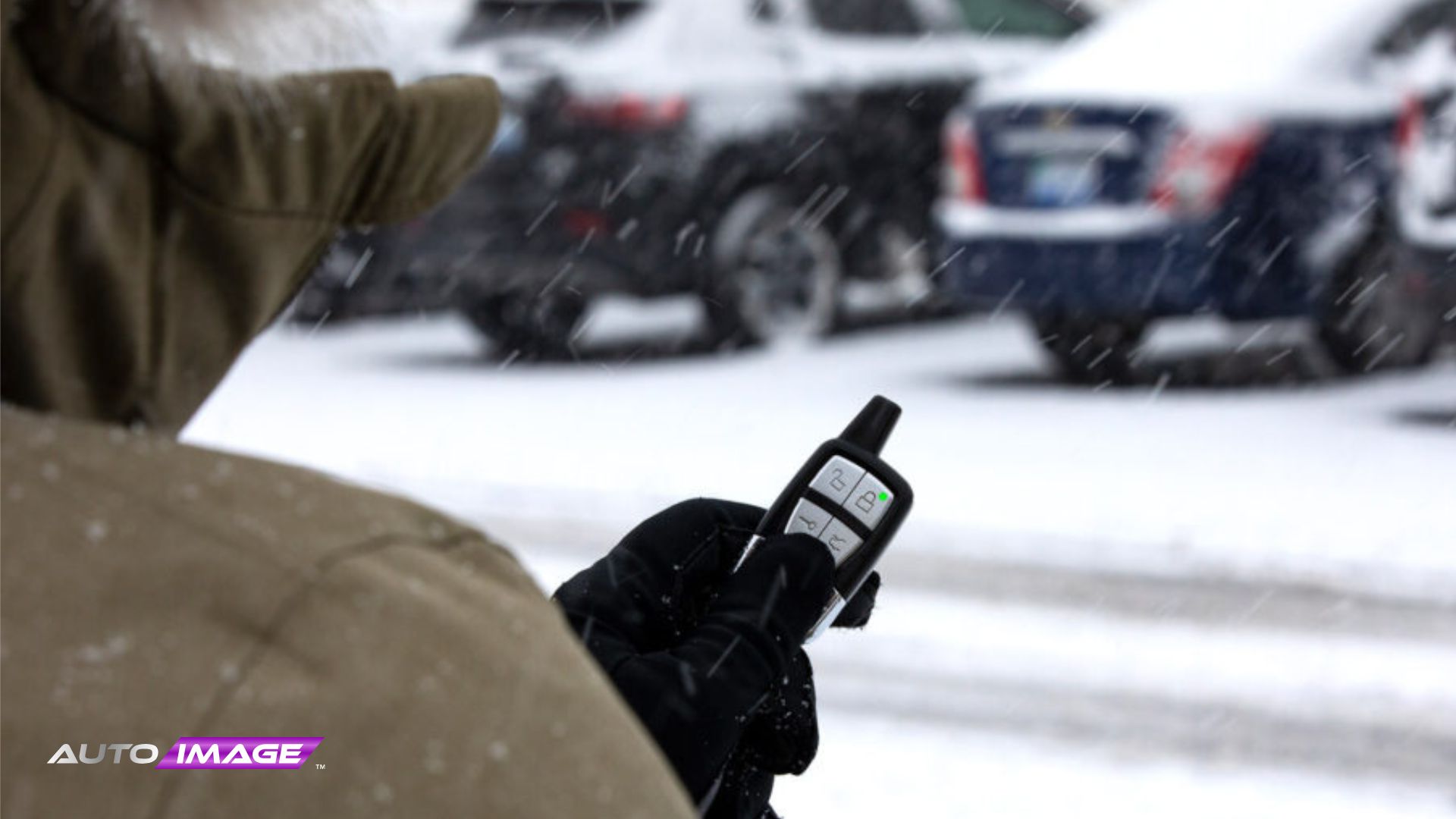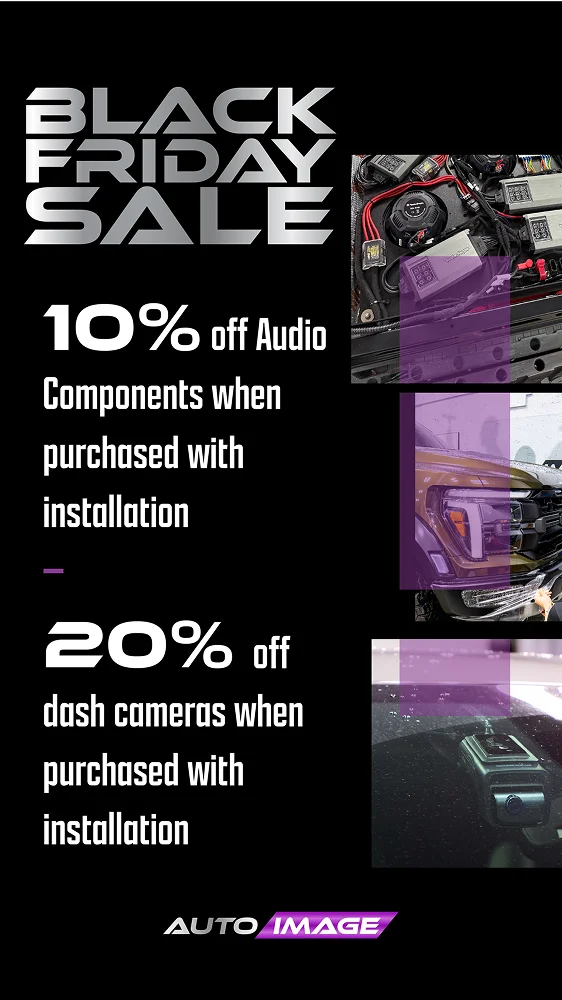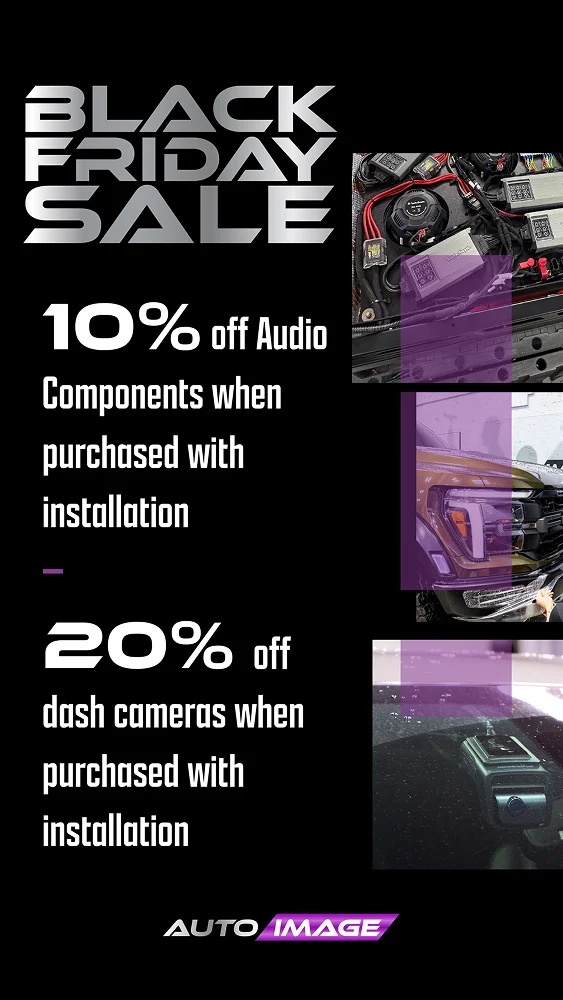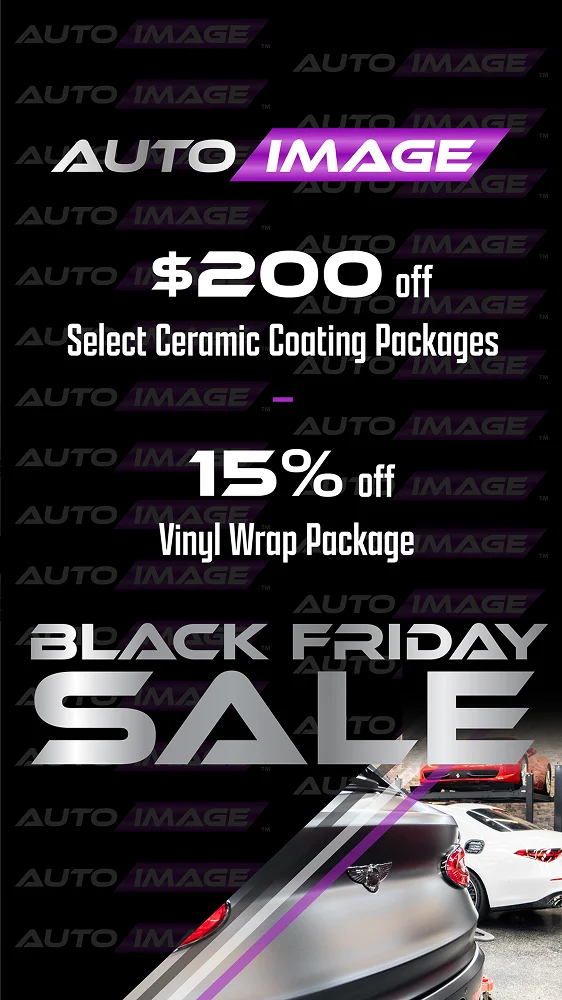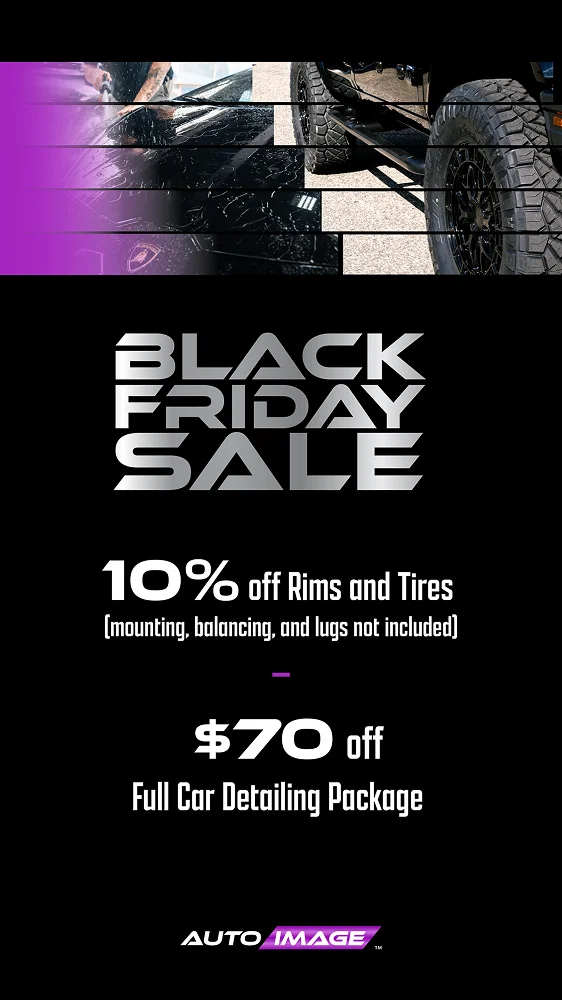From harsh winters with corrosive road salt to intense summer UV rays and unpredictable weather swings, New Jersey’s roads are no easy ride for your car’s exterior. If you’re wondering, “Does ceramic coating protect your car in New Jersey?”—you’re not alone. It’s one of the most common questions we hear from car enthusiasts and everyday drivers alike.
Let’s examine how ceramic coating works, why it’s a smart investment for local drivers, and what it truly protects your vehicle from—especially when applied professionally by experts like the team at Auto Image, New Jersey’s go-to automotive enhancement pros.
What Is Ceramic Coating and How Does It Work?
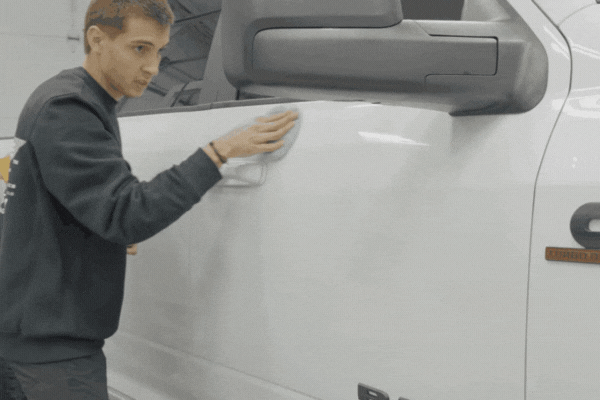
Ceramic coating, often called nano ceramic coating, is a liquid polymer applied to your car’s exterior that chemically bonds with the factory paint. This creates a hardened, chemical-resistant car finish that acts as a semi-permanent protective shield.
At the heart of the formula is silicon dioxide (SiO₂)—a compound derived from natural materials like quartz and sand. Once cured, it forms an invisible layer that enhances your car’s gloss while offering scratch-resistant and hydrophobic properties.
This isn’t your average wax job. Ceramic coating lasts for years, not weeks. It uses paint sealant technology to provide superior protection against the elements, making it ideal for New Jersey drivers who deal with everything from road salt to acidic bird droppings.
👉 For a deeper explanation, visit our guide on how ceramic coating works for New Jersey drivers.
Why Ceramic Coating Is a Smart Choice for New Jersey Vehicles
New Jersey’s climate is a real test for any car’s paint. Here’s why ceramic coating is an ideal solution:
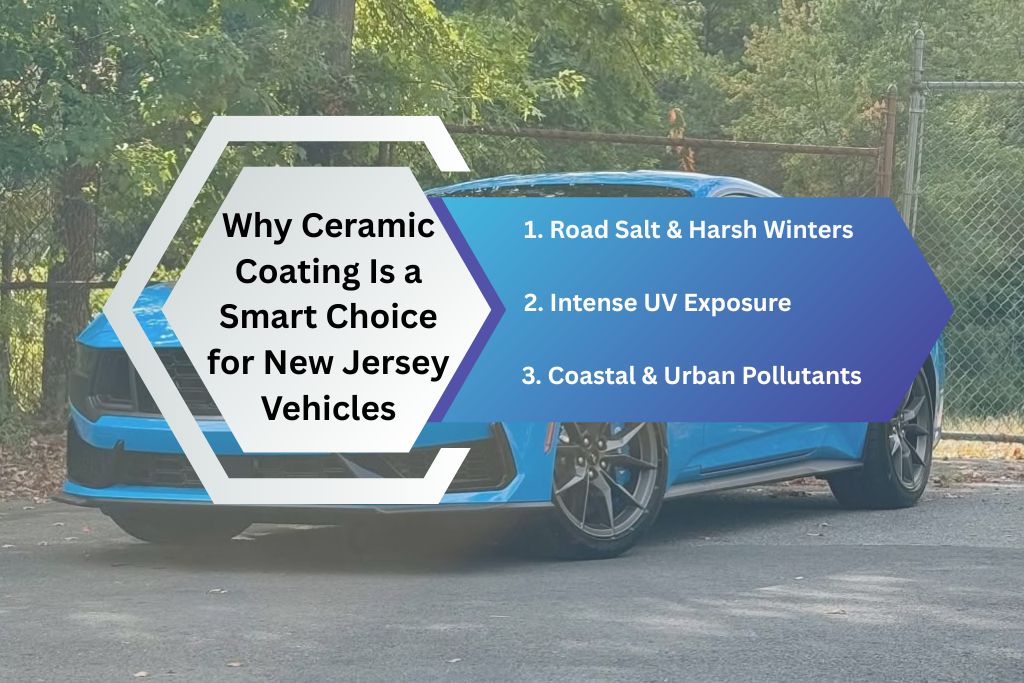
1. Road Salt & Harsh Winters
Salt used to de-ice roads can quickly eat away at unprotected paint, leading to rust, corrosion, and fading. A ceramic coating acts as a weather-resistant car coating, preventing salt from clinging to your paint.
🔗 Learn more in our article on how ceramic coating protects against road salt.
2. Intense UV Exposure
Summer UV rays in NJ can oxidize your car’s paint, causing dullness and fading. Ceramic coatings provide reliable UV protection for vehicles, preserving color and shine.
3. Coastal & Urban Pollutants
Living near the coast or in busy urban areas exposes your car to contaminants like tree sap, bird droppings, and industrial fallout. The chemical-resistant finish of a ceramic coating forms a tough barrier against these threats.
Key Benefits of Ceramic Coating for Car Owners
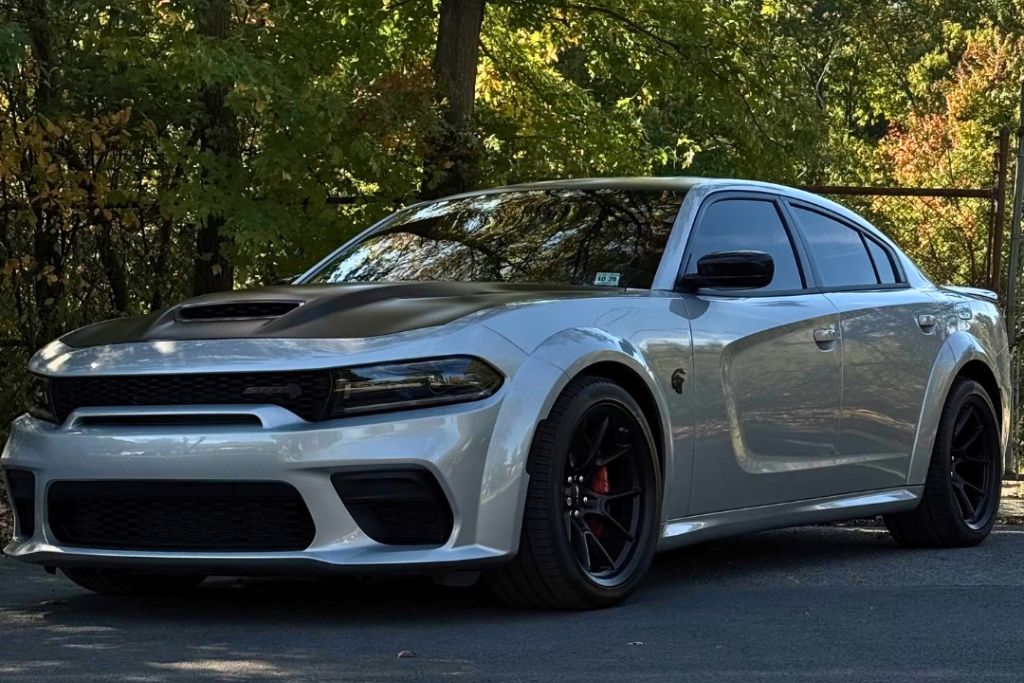
Long-Lasting Shine
Ceramic coatings significantly enhance your car’s natural gloss and color depth. This gloss enhancement is one of the top reasons enthusiasts choose ceramic over traditional wax.
Hydrophobic Properties = Easier Cleaning
Thanks to its hydrophobic nature, ceramic coating repels water, dirt, and grime. Rain beads up and rolls off your vehicle, helping to wash away surface debris. This “self-cleaning car surface” makes maintenance easier and less frequent.
Why is hydrophobicity important for vehicle maintenance?
Hydrophobic surfaces prevent contaminants from sticking, making car washes faster, less abrasive, and more effective. This also reduces the risk of paint damage from scrubbing.
Protection from UV, Chemical Stains & Minor Abrasions
Ceramic coatings help shield your car from UV rays, acidic contaminants, and even minor scratches. While not bulletproof, the scratch-resistant coating reduces everyday wear.
Why do contaminants like bird droppings damage car paint?
Bird droppings are highly acidic and can etch into clear coats within hours, especially on hot days. Ceramic coatings act as a sacrificial barrier, reducing or preventing this type of damage.
Ceramic Coating vs. Other Protection Options
Ceramic Coating vs. Wax
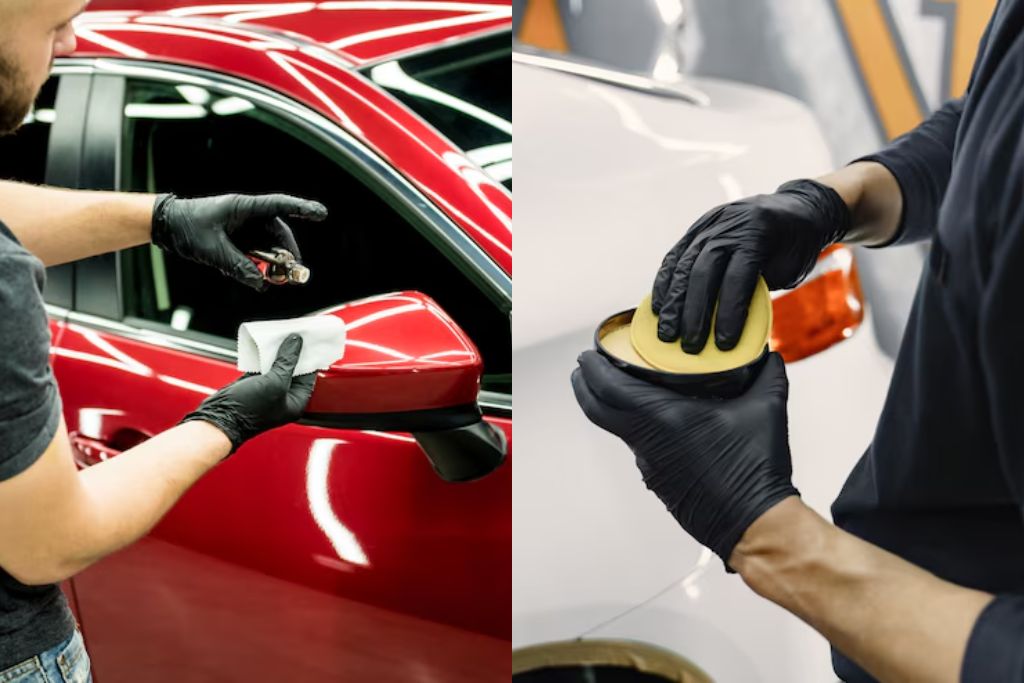
Waxes offer temporary shine and protection, but degrade quickly in NJ’s conditions. In contrast, ceramic coatings offer a long-lasting finish that withstands UV rays, chemicals, and weathering for years.
Why does ceramic coating offer better protection than traditional wax?
Unlike wax, ceramic coating chemically bonds with the paint. Wax sits on the surface and washes away after exposure to heat or detergents.
Ceramic Coating vs. Paint Protection Film (PPF)
Ceramic coatings resist minor scratches but don’t protect against rock chips or deep abrasions. That’s where Paint Protection Film (PPF) excels—it’s thicker and blocks significant impact damage.
🆚 Compare the two in our article: Paint Protection vs. Ceramic Coating
DIY vs. Professional Ceramic Coating Application
DIY kits are available, but they lack the prep, precision, and product quality of professional services.
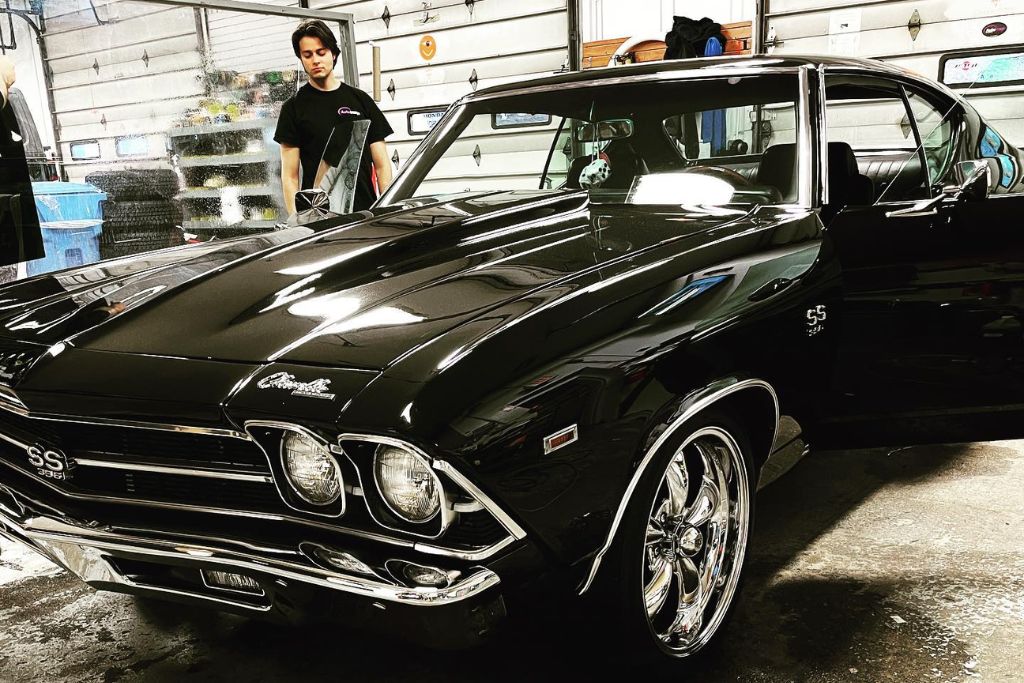
At Auto Image, we provide professional ceramic coating in NJ using top-tier brands like 3M and SolarGard. Our process includes paint correction and ceramic coating, ensuring your vehicle looks flawless before sealing the surface.
Why should I consider professional application over DIY ceramic coating?
DIY coatings can lead to streaks, uneven coverage, or even paint damage if not applied correctly. A professional application ensures proper bonding and long-term performance.
How Long Does Ceramic Coating Last?
With proper care, ceramic coating can last 2 to 5 years or more—much longer than wax or synthetic sealants.
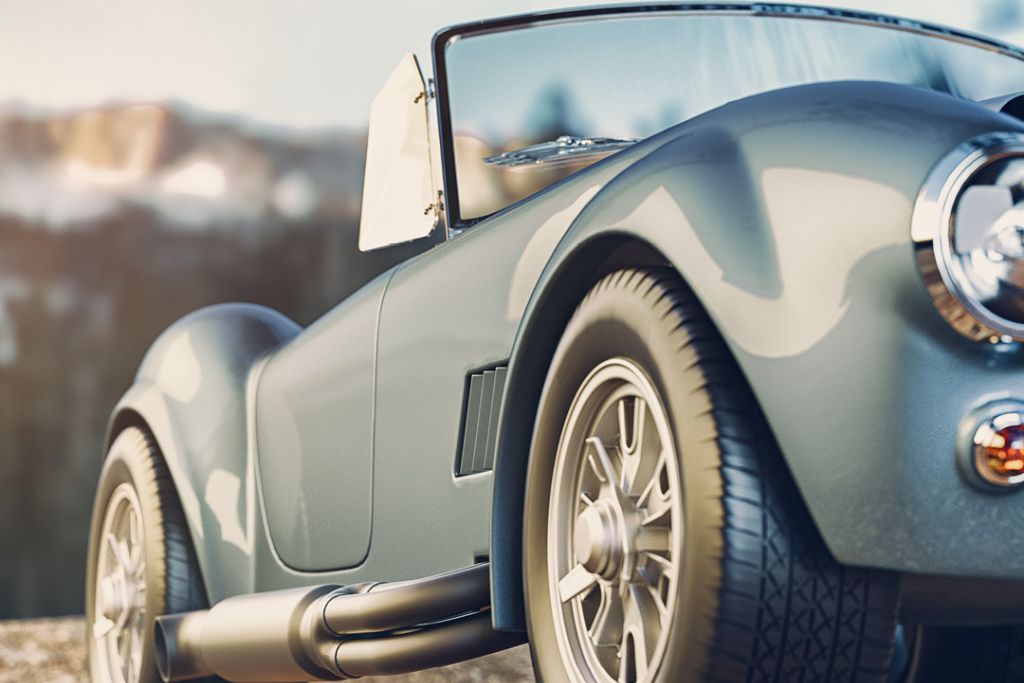
- Use pH-neutral shampoos
- Avoid brush-based car washes
- Apply maintenance toppers every 6–12 months
- Schedule annual inspections
Ceramic Coating as a Long-Term Investment
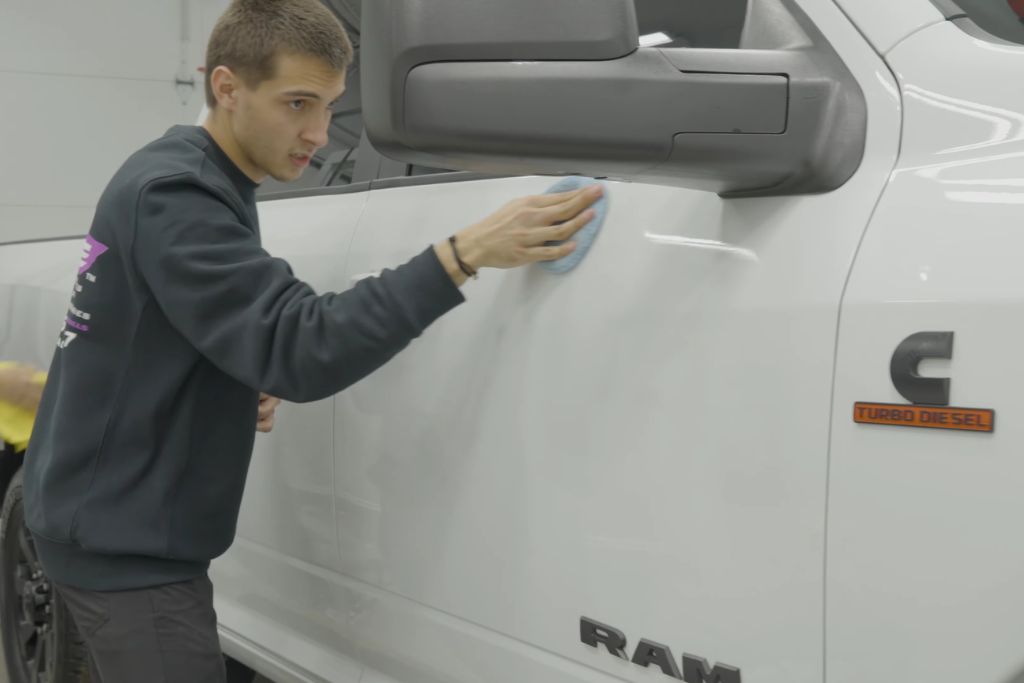
While ceramic coating has an upfront cost, it saves time and money over the long term. You’ll need fewer washes, less frequent paint correction, and your car will maintain its appearance and resale value.
Why is ceramic coating considered a long-term investment?
Because it protects your car’s finish, maintains that showroom shine, and minimizes maintenance costs—especially for luxury or high-performance vehicles.
What Makes Auto Image the Trusted Choice in New Jersey
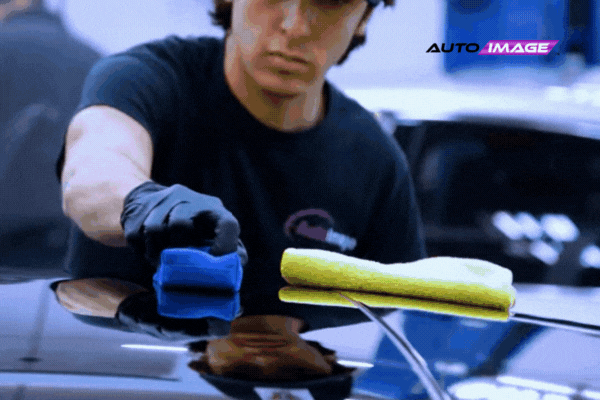
With locations in Brick and East Brunswick, Auto Image has helped drivers from Edison, Raritan, South Brunswick, Wall, Toms River, and Spring Lake protect and enhance their vehicles for decades.
We Specialize In:
- Ceramic coatings
- Window tinting
- Paint protection film
- Remote start & custom audio
- Truck accessories and detailing
🆚 Compare the two in our article: Paint Protection vs. Ceramic Coating
Final Thoughts: Does Ceramic Coating Protect Your Car in New Jersey?
Yes—ceramic coating protects your car from the real-world hazards of New Jersey roads. It’s not invincible, but it offers substantial protection against UV rays, salt, chemicals, and more—while making your car easier to clean and more visually striking.
If you’re serious about protecting your ride, trust the experts at Auto Image for high-quality ceramic coating services in NJ.
FAQ – New Jersey Drivers Ask About Ceramic Coating
Why is ceramic coating recommended for cars in New Jersey?
Because NJ drivers face road salt, UV rays, and harsh weather, ceramic coating offers a durable and long-lasting layer of protection.
Why do New Jersey’s weather conditions affect car paint longevity?
The freeze-thaw cycles, humidity, and salt exposure cause paint to crack, fade, and corrode without protection.
Why does ceramic coating enhance a car’s resale value?
A well-maintained, glossy vehicle signals proper care to potential buyers and retains a higher market value.
Why do car enthusiasts prioritize ceramic coating for vehicle aesthetics?
Because the finish is glossier, more vibrant, and stays cleaner longer than untreated paint.
